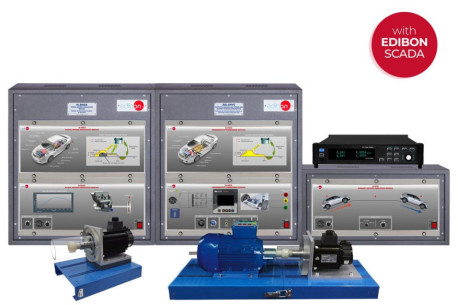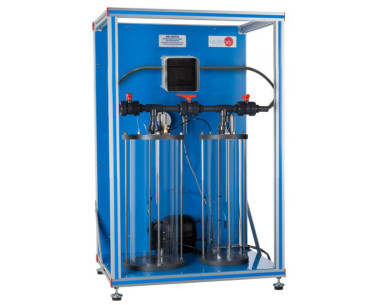- Home
- Products
- 1.- PHYSICS
- ACADEMIC PROGRAMS
- HIGHER TECHNICAL EDUCATION
- FOOD ENGINEERING
- TOPOGRAPHIC ENGINEERING
- GEOLOGY
- FOREST ENGINEERING
- ENVIRONMENTAL ENGINEERING
- ECOLOGICAL ENGINEERING
- TEXTILE ENGINEERING
- ENGINEERING FOR AGRICULTURAL INDUSTRIES
- MECHANICAL ENGINEERING
- CHEMISTRY
- CHEMICAL ENGINEERING
- PROCESS ENGINEERING
- GEOLOGICAL, MINES AND OIL ENGINEERING
- PETROLEUM TRAINING CENTER
- NAVAL ENGINEERING
- AGRICULTURAL ENGINEERING
- ELECTRONICS ENGINEERING
- ARCHITECTURE
- COMPUTER SCIENCE & ENGINEERING
- NUCLEAR ENGINEERING
- AUTOMATIC ENGINEERING
- ENERGETIC ENGINEERING
- ENERGY TRAINING CENTER
- ELECTRICAL ENGINEERING
- SYSTEMS ENGINEERING
- AERONAUTICAL ENGINEERING
- OCEAN ENGINEERING AND MARINE SCIENCES
- PHYSICS
- INDUSTRIAL ENGINEERING
- INTERNATIONAL CENTER FOR TECHNICAL TRAINING, DEVELOPMENT AND RESEARCH
- MATERIALS ENGINEERING
- METALLURGICAL ENGINEERING
- CIVIL ENGINEERING
- TELECOMMUNICATION ENGINEERING
- THERMAL ENGINEERING
- TECHNICAL AND VOCATIONAL TRAINING
- ELECTRONICS
- COMMUNICATIONS
- ELECTRICITY
- COMPUTER SCIENCE
- AUTOMOTIVE TECHNOLOGY
- CIVIL ENGINEERING
- MECHANICAL AND MANUFACTURE
- MECHANICAL AND METAL
- FLUID MECHANICS
- REFRIGERATION AND AIR CONDITIONING
- INDUSTRIAL CHEMISTRY
- CHEMISTRY
- FOOD TECHNOLOGY
- AGRICULTURAL
- AGROINDUSTRY
- MAINTENANCE
- MARITIME AND FISHERY
- AERONAUTICAL MAINTENANCE
- INSTRUMENTATION AND CONTROL
- ENVIRONMENTAL
- TECHNOLOGY
- CONSTRUCTION TECHNOLOGY
- ELECTROMECHANICAL TECHNOLOGY
- STRUCTURAL DESIGN TECHNOLOGY
- INDUSTRIAL PRODUCTION TECHNOLOGY
- INFORMATION TECHNOLOGY
- QUALITY CONTROL
- ENERGY SYSTEMS TECHNOLOGY
- MINING AND PETROLEUM TECHNOLOGY
- NATURAL GAS TECHNOLOGY
- RENEWABLE ENERGY
- TELECOMMUNICATIONS TECHNOLOGY
- MECHANICAL TECHNOLOGY
- WIND TECHNOLOGY
- NUCLEAR TECHNOLOGY
- PROCESS CONTROL TECHNOLOGY
- GENERAL SERVICES TECHNOLOGY
- LABORATORY TECHNOLOGY
- AUTOMATION AND MECHATRONICS
- TRANSPORTATION AND LOGISTICS
- HIGHER TECHNICAL EDUCATION
- 2.- ELECTRONICS
- 3.- COMMUNICATIONS
- 4.- ELECTRICITY
- 5.- ENERGY
- 5.1.- SMART GRIDS AND POWER SYSTEMS
- 5.2.- MICROGRIDS
- 5.3.- RENEWABLE ENERGIES
- 5.3.1.- PHOTOVOLTAIC SOLAR ENERGY
- 5.3.2.- SOLAR THERMAL ENERGY
- 5.3.3.- WIND ENERGY
- 5.3.4.- MARINE ENERGY
- 5.3.5.- GEOTHERMAL ENERGY
- 5.3.6.- HYDRAULIC ENERGY
- 5.3.7.- BIOFUELS
- 5.3.8.- STORAGE SYSTEMS
- 5.3.9.- HYDROGEN FUEL CELLS
- 5.3.10.- STEAM TURBINES AND ORGANIC RANKINE CYCLES
- 5.3.11.- OTHER NON-CONVENTIONAL SYSTEMS
- 5.4.- CONVENTIONAL ENERGIES
- 5.5.- ENERGY STORAGE
- 5.6.- HIGH VOLTAGE AND ELECTRICAL PROTECTION SYSTEMS
- 5.7.- INSTALLATIONS AND MAINTENANCE
- 6.- MECHATRONICS & AUTOMATION
- 7.- MECHANICS
- 8.- FLUID MECHANICS
- 9.- THERMODYNAMICS & THERMOTECHNICS
- 9.1.- FUNDAMENTALS AND BASIC CONCEPTS OF THERMODYNAMICS
- 9.2.- HEATING, VENTILATION, AIR CONDITIONING AND HOT WATER
- 9.3.- HEAT PUMPS
- 9.4.- REFRIGERATION
- 9.5.- THERMAL HYDRAULIC PIPING SYSTEM
- 9.6.- HEAT TRANSFER
- 9.7.- HEAT EXCHANGERS
- 9.8.- THERMAL MACHINES
- 9.9.- INTERNAL COMBUSTION ENGINES
- 9.10.- INSTALLATIONS AND MAINTENANCE
- 10.- PROCESS CONTROL
- 11.- CHEMICAL ENGINEERING
- 11.1.- UNIT OPERATIONS
- 11.1.1.- FLUIDIZATION
- 11.1.2.- EVAPORATION
- 11.1.3.- BOILING
- 11.1.4.- DISTILLATION AND CRACKING
- 11.1.5.- EXTRACTION
- 11.1.6.- DIFFUSION
- 11.1.7.- DRYING AND COOLING
- 11.1.8.- ABSORPTION AND ADSORPTION
- 11.1.9.- ION EXCHANGE AND CORROSION
- 11.1.10.- CRYSTALLIZATION AND PYROLYSIS
- 11.1.11.- FILTRATION, SEDIMENTATION AND MIXING
- 11.1.12.- SOLIDS TREATMENT
- 11.2.- CHEMICAL REACTORS
- 11.1.- UNIT OPERATIONS
- 12.- FOOD & WATER TECHNOLOGIES
- 13.- ENVIRONMENT
- 14.- BIOMEDICAL ENGINEERING
- 14.1.- BIOMECHANICS
- 14.1.1.- MECHANICS FUNDAMENTALS KITS
- 14.1.2.- SIMPLE MACHINES
- 14.1.3.- STATICS AND DYNAMICS
- 14.1.4.- VIBRATIONS AND OSCILLATIONS
- 14.1.5.- TRIBOLOGY (FRICTION, WEAR, LUBRICATION)
- 14.1.6.- STRUCTURAL MECHANICS
- 14.1.7.- PHOTOELASTICITY AND STRAIN MEASUREMENT
- 14.1.8.- MECHANICAL TESTS
- 14.1.9.- THERMAL AND ACOUSTIC TESTS
- 14.2.- BIOMEDICAL ELECTRONICS
- 14.3.- BIOMEDICAL EQUIPMENT
- 14.1.- BIOMECHANICS
- LABORATORY ACCESSORIES
- CUSTOMIZED PILOT PLANTS
- MODULES
- EXPANSIONS
- LABORATORIES
- Lines of Business
- Technology
- Downloads
- About us
- News
- Contact us
Recycling and energy storage systems
At the forefront of these issues is the need for innovative approaches that not only meet the soaring demand for raw materials but also mitigate the environmental impact of battery disposal. As EV batteries reach the end of their lifecycle, they can become a significant source of pollution if not managed correctly. Addressing these challenges requires a comprehensive and sustainable strategy focused on recycling and reusing valuable materials within a circular economy framework.

EDIBON’s commitment to circular economy in energy storage
At EDIBON, we recognize the importance of sustainable practices in energy storage and are committed to developing real-world solutions that address these global challenges. Our work focuses on integrating circular economy principles into the lifecycle of lithium-ion batteries. By emphasizing recycling and efficient resource utilization, we aim to significantly reduce waste and environmental impact while supporting the increasing demand for essential minerals.
Our circular economy approach in energy storage revolves around three key areas:
1. Battery recycling: At EDIBON, we employ cutting-edge recycling processes to recover valuable metals like lithium, cobalt, and nickel from used batteries. This not only reduces the need for raw material extraction but also prevents potentially hazardous waste from contaminating the environment. Through these recycling processes, we can recirculate precious materials back into the production cycle, helping to preserve natural resources and reduce reliance on mining.
2. Energy storage systems: Beyond recycling, energy storage systems play a critical role in sustainable energy management. As renewable energy sources like solar and wind become more prevalent, the need for efficient storage solutions grows. Our energy storage systems are designed to support renewable energy integration, helping balance supply and demand, reduce energy waste, and promote a more stable and resilient power grid.
3. Pilot Plants for real-world solutions: To bring our ideas to life, EDIBON has developed pilot plants that offer practical solutions to battery recycling and energy storage challenges. These pilot plants allow us to test and refine our technologies, ensuring that they meet both environmental and industrial standards. Our facilities demonstrate the feasibility and effectiveness of our recycling processes, providing a model that can be scaled and replicated globally.
The environmental impact of lithium-ion batteries and the path forward
The environmental impact of lithium-ion batteries goes beyond their disposal; it starts from the mining and refining of raw materials. Extracting lithium, for example, requires significant water resources, often in regions where water scarcity is already an issue. Additionally, the mining of cobalt and nickel can lead to environmental degradation and ethical concerns surrounding labor practices. By focusing on recycling and reusing these materials, we can reduce the ecological footprint of battery production and contribute to a more sustainable supply chain.
Our pilot plants at EDIBON are a testament to our commitment to this cause. They demonstrate how recycling and recovery processes can reduce the need for raw material extraction, lower greenhouse gas emissions, and prevent toxic waste from entering the environment. By converting waste into valuable resources, we help minimize the environmental impact associated with the end-of-life stage of batteries and create a circular loop within the battery production cycle.

Join us in building a greener future
As a company dedicated to innovation and sustainability, EDIBON is committed to leading the way in energy storage and battery recycling. We invite you to learn more about our efforts and witness our pilot plants in action. Together, we can create a future where energy storage solutions are not only effective but also environmentally responsible, contributing to a cleaner, greener, and more efficient world.
At EDIBON, we believe that every step toward a circular economy in energy storage is a step toward a sustainable future.
 Cookie preferences
Cookie preferences



